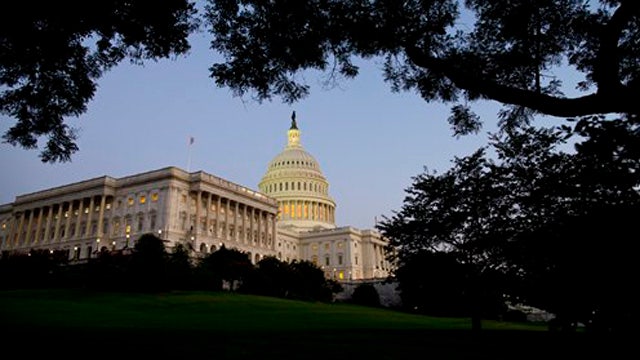Who will be hurt most by gov't shutdown?
President Obama, Democrats or Republicans: Who will be damaged most politically by a government shutdown
What the Obama administration is portraying as a "shutdown" of the federal government -- complete with signs posted at the entrances to government buildings, parks and monuments -- is turning out to be more of a "slimdown," as all but non-essential workers reported to their jobs Tuesday.
The biggest impact is expected to be felt for the 800,000 or so federal workers facing furlough. But hundreds of thousands of other workers are reporting for work, and a patchwork of services remains open to the public as lawmakers and the White House continue to battle over a spending package.
Mail will still be delivered, Social Security checks will go out and, thanks to a last-minute bill, the military will continue to get paid.
And, as before, lawmakers will continue to bicker on Capitol Hill.
The debate in Congress Tuesday looked much like it did before the partial government shutdown -- with House Republicans insisting on changes to ObamaCare as part of the budget bill and Democrats refusing.
The House once again endorsed an approach that delays the law's individual mandate while prohibiting lawmakers, their staff and top administration officials from getting government subsidies for their health care.
And the Senate once again rejected it, in a party-line, 54-46 vote Tuesday morning.
"It's time for Republicans to stop obsessing over old battles. I mean, I say to my Republican friends, ObamaCare is over. It's passed, it's the law," Senate Democratic Leader Harry Reid said.
President Obama, speaking in the Rose Garden, urged Republicans to "re-open the government."
Republicans say that's what they're trying to do. Republicans this time tried to urge the Senate to form a so-called conference committee -- a bicameral committee where lawmakers from both chambers would meet to resolve the differences between the warring pieces of legislation.
Though the House has already begun appointing representatives to that committee, the Senate rejected the offer on Tuesday morning. Democrats insist they would not agree to that approach unless and until the House approves a "clean" budget bill.
Despite many facets of the government remaining open, the impact of the partial shutdown will begin to be felt across the country, as other agencies cut back their staff and national parks and other locations close down -- a situation that will put increasing pressure on Congress as the hours and days drag on to reach an agreement.
The debate is as much a political one as it is an effort to figure out a way to reopen the government.
Lawmakers spent the final minutes before midnight trying to assign blame to the other side of the aisle. Republicans are no doubt wary of the blowback their party felt during the Clinton-era shutdown, while Democrats were almost eager to pile the blame on the GOP.
"This is an unnecessary blow to America," Reid said.
House Speaker John Boehner claimed that Republicans are the ones trying to keep the government open but "the Senate has continued to reject our offers."
Ahead of the deadline, the White House budget office ordered agency heads to execute an "orderly shutdown" of their operations due to lack of funds. Americans will begin to feel the effects of a shutdown by Tuesday morning, as national parks close, federal home loan officers scale back their caseload, and hundreds of thousands of federal workers face furlough.
The question now is how long the stand-off will last. Congress is fast-approaching another deadline, in mid-October, to raise the debt limit or face a U.S. government default. Lawmakers presumably want to resolve the status of the government swiftly in order to shift to that debate.
Throughout the day Monday, lawmakers engaged in a day-long bout of legislative hot potato.
The House repeatedly passed different versions of a bill that would fund the government while paring down the federal health care overhaul. Each time, the Senate said no and sent it back.
The rhetoric got more heated as the deadline neared.
"They've lost their minds," Reid said of Republicans, in rejecting the latest proposal.
"Senate Democrats have made it perfectly clear that they'd rather shut down the federal government than accept even the most reasonable changes to ObamaCare," Senate Republican Leader Mitch McConnell countered.













































